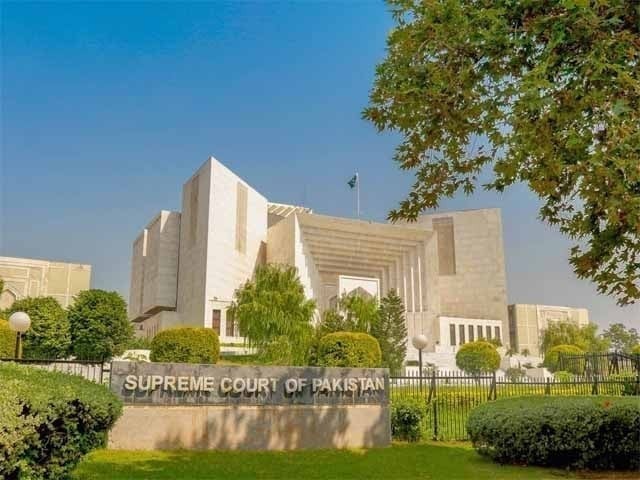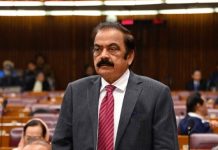From Zeeshan Mirza
KARACHI: Supreme Court’s Justice Ayesha Malik on Tuesday emphasized that seats should only be allocated based on proportional representation.
During the hearing regarding the reserved seats for the Sunni Unity Council (SIC), she reiterated that seats cannot be granted except according to the principle of proportional representation. Chief Justice Qazi Faez Isa presided over a 13-member full court for the proceedings.
The full court comprises 13 judges, and also includes Justice Mansoor Ali Shah, Justice Munib Akhtar, Justice Yahya Afridi, Justice Aminuddin Khan, Justice Jamal Khan Mandokhail, Justice Muhammad Ali Mazhar, Justice Ayesha Malik, Justice Athar Minallah, Justice Hasan Azhar Rizvi, Justice Shahid Waheed, Justice Irfan Saadat Khan, and Justice Naeem Akhtar Afghan presided over the case.
At the beginning of the hearing, Faisal Siddiqui, representing the Sunni Ittehad Council (SIC), stated that Sahibzada Hamid Raza had contested the election independently but had mentioned his affiliation with the SIC in the nomination papers.
Referring to the Peshawar High Court’s (PHC) decision, Makhdoom Ali Khan explained that the Election Commission of Pakistan (ECP) had declined to allocate specific seats to the SIC, a decision upheld by the PHC. CJP expressed surprise that Salman Akram Raja and Faisal Siddiqui did not discuss the PHC’s decision, focusing only on the Election Commission’s ruling.
Justice Athar Minallah noted that Hamid Raza had indicated his commitment to the SIC in his nomination papers. Justice Jamal Mandukhel added that party affiliation required a party ticket.
Makhdoom Ali Khan clarified that Hamid Raza had submitted a letter stating he did not contest the election under any party banner.
Justice Minallah stated that the election symbol does not necessarily indicate party participation. Justice Ayesha Malik questioned why Hamid Raza was prevented from contesting on a party ticket, suggesting the case could take a different turn if confirmed by the ECP.
Justice Muhammad Ali Mazhar pointed out that although the SIC had an election symbol, no candidate ran under it. Makhdoom Ali Khan noted this was not raised in the appeals.
The chief justice emphasized that judges should only consider points raised in appeals, not create or undermine any party’s case.
Makhdoom Ali Khan argued that the SIC, as the petitioner, did not field any candidates or provide a specific seat list.
Justice Minallah stated that if proven, Hamid Raza being a candidate for the Sunni Unity Council would alter the case.
Justice Mandukhel discussed the implications of giving a party certificate and defection rules under Section 63A, adding that Form 33 would clarify party affiliations.
Justice Minallah noted that it was acknowledged that all PTI candidates were declared independent.
Justice Shahid Waheed asked if any candidate had renounced party affiliation after submitting their papers.
Justice Shah highlighted that on March 4, the ECP stated all candidates were independent, questioning the basis for this declaration.
Justice Minallah discussed the current political landscape and its implications.
Justice Muneeb Akhtar questioned how the ECP could declare a candidate independent if they had shown party affiliation and couldn’t withdraw it.
CJP Isa stated that PTI is not a party in this case, nor are there any elected representatives involved. He emphasized that the arguments presented before the court will remain unchanged.



